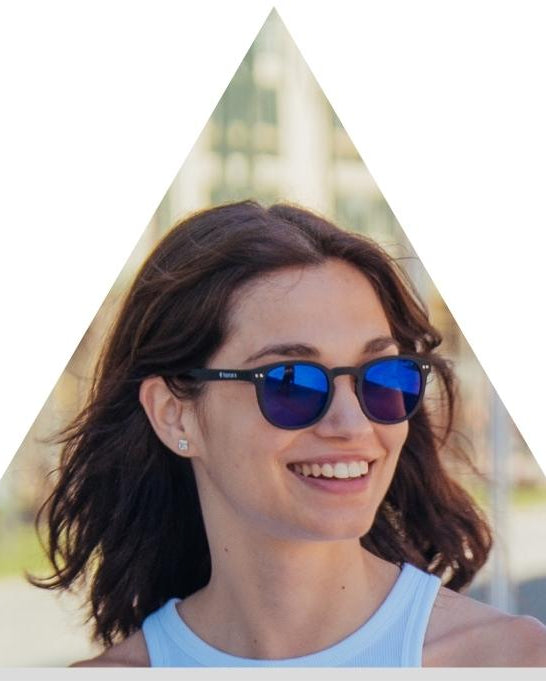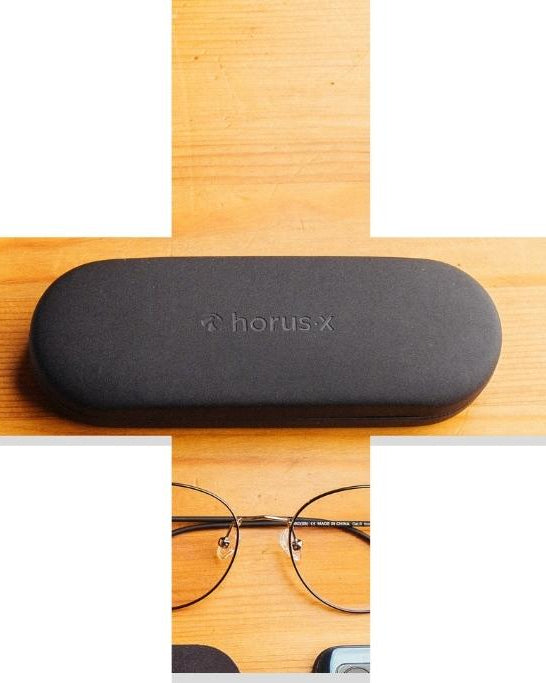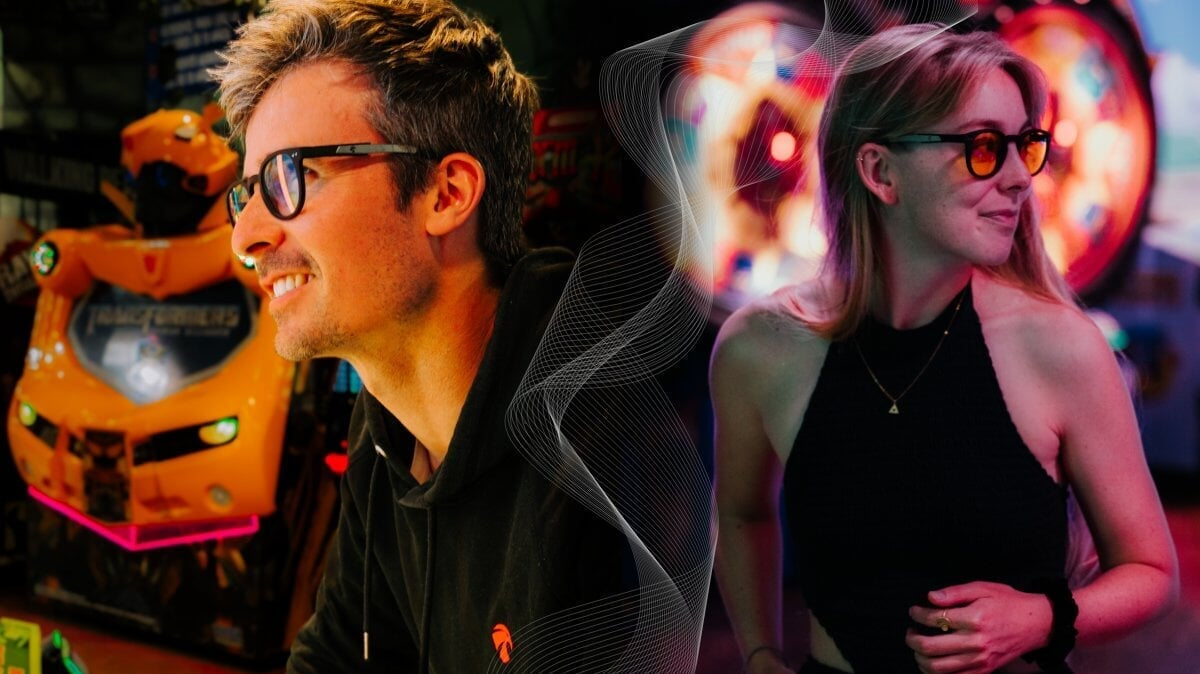Who doesn’t like cruising down the highway, windows down, Neil Diamond blaring from the speakers?
A pleasant drive can solve a lot of problems in life. But unfortunately, it can also cause them. With the constant glare from oncoming headlights, electronic billboards and electronic signs, you’re almost constantly exposed to Horus X’s mortal enemy…. blue light.
Frequent drivers who are sensitive to light can suffer even more from this. Without proper protection, driving can become hazardous to your health; in more ways than just accidents on the road.
So, should you wear blue light glasses for driving and which are the best type to choose? Let’s look into the benefits of protecting your eyes when on the Old Town Road.
No time to read all this info? Here’s a snapshot of the best glasses for driving:
| Sunshine | Day | Night | |
| The One Darkmatter | ☀️ | ✅ | ❌ |
| The One Clear | 🌤 |
|
|
Sources of blue light on the road

To recap: There is natural blue light but also artificial light sources and, in particular, LEDs, which emit harmful blue light.
Blue light can cause visual disturbances like eye fatigue, blurred vision, or dry eyes; and impact other aspects of your health, like contributing to sleep disorders.
Now the bad news… our roads are filled with artificial lights packed with plenty of blue light wavelengths. This is especially true for nighttime driving when all the lights are on and you’re exposed to the headlights of other road users.
Psst: This is just an overview. Click the link to read more about the dangers of blue light.
Other common sources of blue light on roads include:
- 🚗 The headlights of cars, motorcycles and trucks: Modern-day vehicles are usually equipped with LED or Xenon headlights. They’re pretty and consume less energy, but they don’t help your eyes! While we don’t recommend this, if you’ve ever accidentally stared head-on at poorly adjusted Xenon or LED headlights, you’ll know the feeling of being dazzled by the brightness. That’s bad enough on its own on the road, but at the same time, you’re also getting a heaping helping of blue light, straight to the retina.
- 📺 Screens inside your vehicle: Smartphones (not that you should be looking at them!), GPS, and your car’s inbuilt infotainment system screen all emit blue light. This is true even when you’re driving at night or have your devices set to night mode. It might cut down on blue light, but it’s still there, lurking in the background like Leonardo Di Caprio at a Victoria’s Secret party. Plus, most modern cars now have digital dashboards with LED displays… which means even more blue light for your poor eyes to absorb!
- 🚥 Billboards, shopping malls, gas stations: There’s so much light pollution that distracts your eyes when driving at night. In addition to stopping you from seeing the stars, these distractions contribute to achy eyes and eye fatigue (also known as digital eye strain).
Do blue light blocking glasses help with night driving?

Fortunately, there’s a way to protect your eyes while driving at night. Blue light blocking glasses can significantly improve night driving by reducing glare and eye strain, allowing you to see more clearly despite the bright lights in the dark. No matter how good you think your night vision is, these glasses can help.
And luckily for you, they’re Horus X’s specialty! Our blue light blocking lenses are made using our patented Horus X technology that filters up to 96% of harmful blue light (depending on the model you choose).
How do I choose blue light glasses for driving?
The good news is you don’t need to purchase multiple pairs of blue light glasses for driving. You can purchase an all-round pair that best suits your daily use.
For example, if you drive mostly at night, or in low light conditions, you’ll need clear lenses. These filter blue light while letting enough general light through for you to still see (pretty important when driving).
👉 The Nomad range is suitable for both day and night driving, as the frames are fitted with clear lenses that filter out up to 60% of the harmful blue light spectrum. Not to mention they also have 100% UV filtration! We've designed these glasses to keep you looking stylish whether you're in the car, on the street or when used as computer glasses in the office.
If you drive mostly in the daytime, you can choose a darker lens or even a pair of blue light blocking sunglasses. With tinted lenses, you can avoid the fatigue and dry eyes caused by sun exposure.
Horus X sunglasses are anti-blue light, anti-UV and anti-glare so you’re fully protected during the day. There’s fashion and function all in one pair of sunnies!
Do yellow night driving glasses work (and are they a good idea)?

There’s mixed advice about wearing yellow night driving glasses. Some say a blue light blocking lens is effective, others disagree.
Some studies, like this study by Jama Ophthalmology, find that they don’t appear to improve pedestrian detection or reduce headlight glare. However, these studies have very small sample sizes (only 22 people), and anecdotal comments online tell a different story. Many people swear by the effects of these glasses and wouldn’t drive without them. So, it all comes down to personal comfort and choice.
We’re not a one-size-fits-all company! Except for our glasses… because they really do suit everyone. 😎
👉Warning: Don’t add night blindness to your driving routine! You should still be careful when choosing yellow tinted lenses for driving at night. Make sure the tint isn’t too dark as this could be dangerous and reduce your visibility.
Blue light blocking glasses for driving: Final thoughts
Whether in the day or at night, there are hazardous blue lights on the road that can impair your vision through glare and fatigue.
For blue light protection while driving, wear blue light blocking glasses to help you in your quest from point A to point B. They work, support good eye health, and your passengers will feel safer with a more alert driver!















